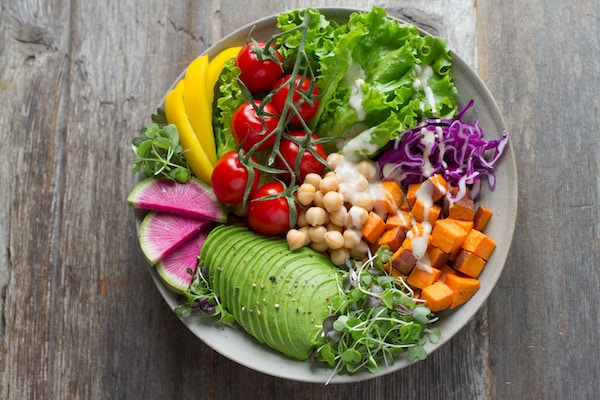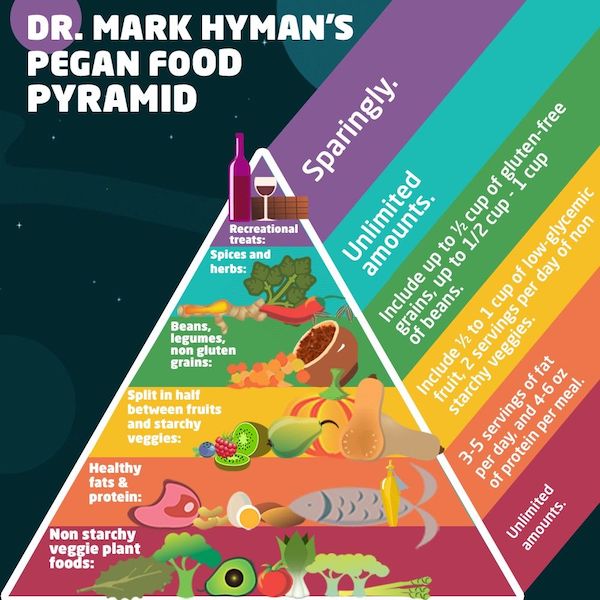Change – before anything else – requires introspection. Look inside yourself. Stand in front of the mirror.
What do you see?
Chances are, you feel like you need to do some things different. You need to make a plan. And perhaps the next two weeks are your opportunity to do that – after all, the new year is right around the corner.
So often I feel this way. Frequently I find myself wishing I could radically change areas of my life.
What discourages me from instituting those changes, however, is the rate of failure. I can’t seem to make a change that lasts…
Despite all my shortcomings – particularly in my health – I can’t help but be confronted with the obvious benefits of making those changes. If I could implement certain changes I could keep up, then my life would improve by leaps and bounds.
I want to succeed in 2020 so that next year I can feel some contentment. And move on to new changes.
If you’re reading this article you probably feel the same way. You want to make some important changes and stick to them!
Hopefully I can help.
I’ve done quite a bit of research on change. More specifically: health changes – and how to make them last.
I’ll share with you 7 crucial secrets to making lasting changes to your diet, exercise, and sleep patterns.
Just keep reading:
DIETS

First let’s talk eating. There are so many diets out there, so many tips and tricks, that picking one can feel overwhelming. Don’t worry – most of these diets actually work (if you stick with one). Picking one will just depend on your circumstances.
Here is my ONE RULE for picking a diet: it has to be based on real food. What do I mean by that?
I mean that if it allows processed foods, like things in boxes and package which contain processed carbohydrates and sugar, then I cross it out.
Instead I suggest picking a diet of plant foods, healthy fats, and clean protein for each meal.
So, take the sugar and processed carbs out of your meals. Add in the non-starchy vegetables, fruit, and small portions of meat. If you’re up for it, eat nuts and berries along with ancient whole grains.
Medicinal chef Dale Pinnock has said, “If it ran, swam, flew, or grew, then eat it! If not, leave it behind.” This is good advice.
Here is a food pyramid created by medical doctor Mark Hyman that can be consulted for healthy eating:

Healthy eating is the primary component to losing weight and staying fit. But there’s more to it than just clean dieting:
EXERCISE & SLEEP
From my observation, people put exercise on a pedestal.
A well meaning person may say, “Oh, you need to lose some weight? Start jogging!”
This kind of exercise is overrated, actually. Nonetheless it IS still important.
On the other hand, sleep is not considered at all. Yet it’s also vitally important to your overall health.
Weight loss = 80% food and 20% exercise.
Meanwhile sleep influences your overall health, your energy, and how good you feel.
So, how do you exercise the right way?
First, do what you enjoy. You’re never going to be able to keep up what you dread. So if you like jogging (like I do), go for it! If you prefer swimming, then swim. If cycling is your first love, then cycle.
Second, mix it up. People have a hard time staying motivated when they do the same thing every day. So, let’s say you jogged on Monday. Do yoga on Tuesday, then hit the gym on Wednesday. Then go back to jogging on the weekend.
Third, if you want abs, make sure you ABS —> always be stretching. As I jogger, I know how easy it is to hurt yourself if you don’t do warm up stretches prior to your runs and, more importantly, do cool down stretches afterwards.
Finally, it is vitally important to set goals and record your progress. However, I am not covering that here because I’ll get to this in the next section.
Just keep in mind: the only way to get results from exercise is by sticking with it. That’s why it’s so crucial to know how to make the changes last:
HOW TO MAKE THE CHANGES LAST
The hardest part of eating healthy is being consistent. It’s difficult to stick to the changes you make on new years.
Sometimes I imagine what I’ll be wanting to change one year from now. Will I be berating myself with self-talk about the same changes I am wanting to make right now? Will I be telling people I’m trying to do the same things I’m doing right now?
I don’t want to be in that situation.
Nobody does.
The ONLY WAY to be healthy is to make the health changes LAST.
Persistence is a key part of being happy with who you are.
So let’s learn how to be healthy for as long as we want, starting with point one:
1. Define your success
‘Why’ questions are very important for people on the road to health.
Ask yourself why you want to be healthy. Don’t settle for vague answers like, “I want to look better,” “I want to feel good,” or “I want a new challenge.”
Remember: change, first and foremost, requires introspection. Visit an accountability mirror (as some have called it) and digest who you are, what you want to change, and why you want to make those changes.
To get down to the why, visit who you will become if you DON’T make the changes. Perhaps you’ve seen someone die from an entirely preventable disease, if only they had made some changes. Visualize that person during times of temptation.
Think of the personal reasons you want to change. These are reasons that evoke emotion. For example, “I want to get healthy because I want to see my grandchildren grow up.” When cookies are out on display at a social event, tell yourself such a reason.
Finally, write down the reasons on a piece of paper and tac that paper somewhere visible. In the morning, speak out the reasons aloud. Let them seep into your subconscious.
2. Make the right goals
Everyone knows that you’ve got to list out goals for weight loss. But many people don’t know how to make the right ones.
To set the right goal, find the golden mean.
On one hand you have the overachiever who thinks he or she can shave off way more than is realistic. Some of these overachievers are disciplined, and they do something radical to meet their initial goals. Going two weeks just consuming minimal amounts of bone broth to drop 20 pounds in 14 days isn’t sustainable, however.
On the other hand, you have the pessimist who sets the bar too low. Setting the bar too low depletes any initial motivation. You think, “Well, I can cheat here because I’ve only got to lose this much weight.” Not having a moderately challenging goal sets you on a downward spiral.
Real changers must find a balance.
If running a mile a day is not reasonable, don’t make that a goal; instead write down stationary biking a mile a day in [fill in a time].
Make the weight loss goals short-term and feasible. Adjust as you go.
3. It’s about skill not will
So many people believe in this one dangerous misconception.
The misconception —> making a change is about willpower.
Willpower is only half of the equation. The other half is about skill. You must employ tactics to create an unfair advantage for yourself.
For example, don’t keep junk food in the cabinet! Do not rely on yourself to resist what is in your proximity. Instead, remove the junk food, then fill the cabinet up with natural options.
Another tactic: keep the exercise equipment nearby. Instead of relying on yourself to drive to the gym, keep a stationary bike near the TV.
Anther tactic: bring workout clothes to work. That way, you can hit the gym while driving home from work instead of having to make two trips.
A final tactic: if you set an alarm on your phone to wake up, don’t put your phone on the nightstand. Put it across the room so you have to get out of bed to turn the alarm off.
Being healthy is not about using willpower to resist. It is about using strategies (skills) to set yourself up for success.
4. Propinquity
The definition of propinquity – the state of being close to someone or something
Let’s explore propinquity in action. Say an employee works next to his boss versus an equal performing employee who works on the level blow. The employee next to his boss will likely receive more promotions – because the boss sees him more.
Now apply this to eating healthy. If you have a jar of peanut m&ms sitting on your desk, then you’re going to eat the peanut m&ms. So remove the jar. But that’s not enough. You’ve got to replace the jar with something else, say, cashews.
What’s in your proximity is going to influence your behavior, success, and failure. Why? Because you are drawn to what you see.
This is the power of propinquity.
5. The Friends Factor
Social accountability is a major factor for any change, especially weight loss and exercise.
According to one study, those who regularly exercise with a partner are 40% more consistent than those who do not.
Therefore recruit some friends to either go on a health challenge with you or at least have a couple people to talk to about health with you. In fact, another study showed that a call from a trusted person once per week prompted a 78% increase in consistent exercise.
In a word, it’s positive peer pressure.
Another way to use the friends factor is with social media. Regularly post your progress on the social media platform of your choosing. Perhaps post a before and after picture to display your results and encourage others.
If you take anything away, let it be this: you can’t lose weight in isolation. Use the power of friendship to increase your odds of success.
6. Do the little things
As I’ve said before, staying fit is about consistency. In turn, consistency is about doing the little things.
A Navy SEAL admiral once said, “To change the world, make your bed.” Similarly, to lose 50 pounds you must start by not putting cream in your morning coffee.
When you repeatedly do the little things, day by day, you start to callus your mind. When you callus your mind the ability to tackle bigger problems becomes doable.
Examples of ‘doing the little things’ could be: weighing each morning (keep yourself accountable), walking your dog down the street, taking a cold shower (yes, cold water is good for you!), and waking up at a consistent time.
7. Reward yourself
The seventh and final way to make a lasting health change is this: reward yourself for meeting your goals. Rewards can act as incentives to reach the aims you’ve made for yourself.
Rewards for meeting goals only work when your goals are short-term, which is another reason to keep your goals short and feasible. Of course, the results are rewarding enough, but something extra always reinforces your motivation.
Perhaps you can buy a new outfit after one month. If you pair this with throwing out your old workout clothes, it would also help keep you at your new weight.
The best rewards are modest and used sparingly.
I hope you have great success in 2020 meeting your health goals! Remember: to make the health changes last, it’s all about strategy. Feel free to consult this article again so that you can internalize these 7 secrets to lose weight and stay healthy.
